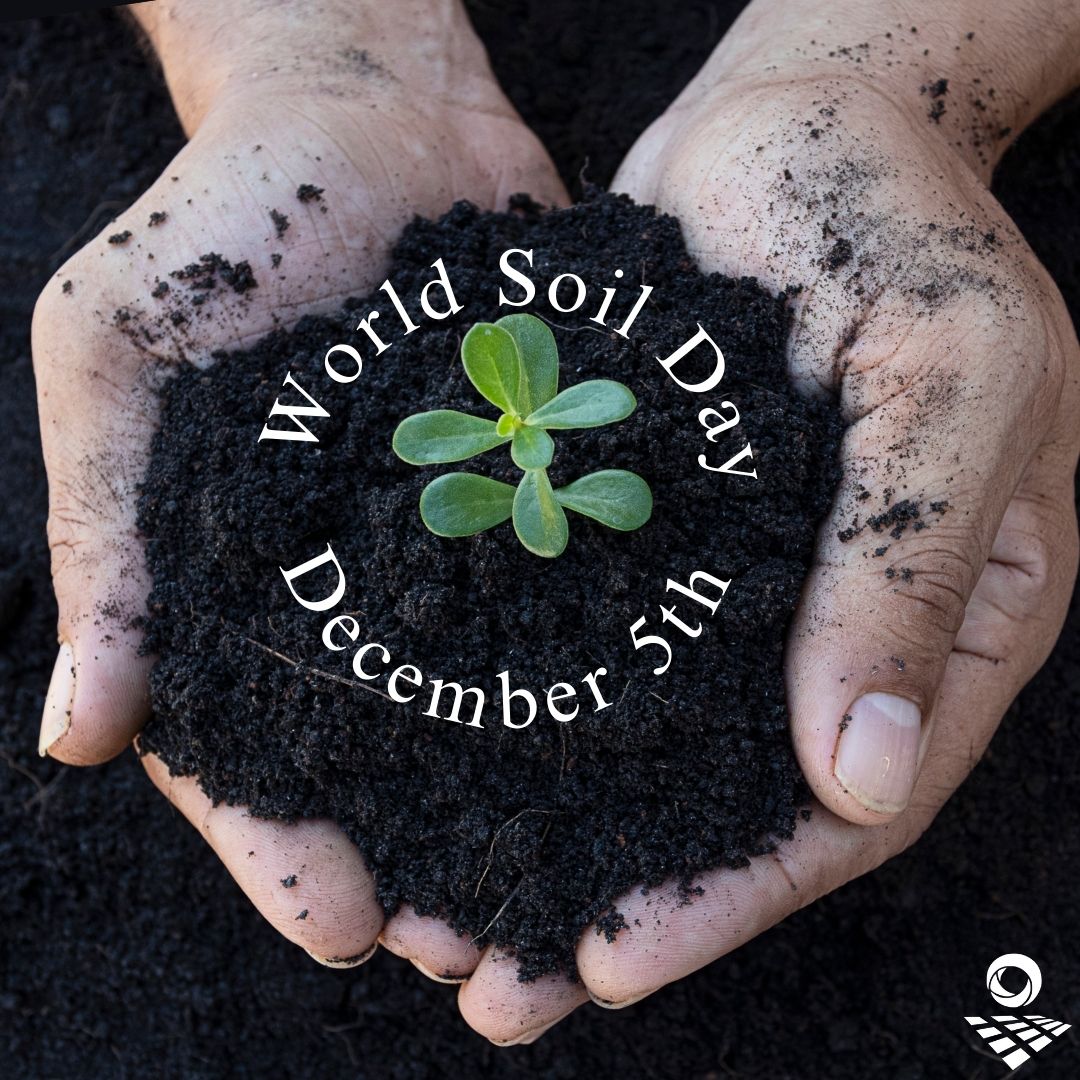
News & Blog
World Soil Day 2024: Celebrating the Essential Link Between Soil and Water

On December 5, people worldwide come together to celebrate World Soil Day (WSD), an international observance dedicated to recognizing and promoting the vital role that healthy soils play in supporting life on Earth. The theme for this year, “Soil and Water, a Source of Life,” highlights the inseparable connection between these two resources and their role in sustaining agricultural systems and, ultimately, human survival.
The Vital Connection Between Soil and Water
Soil and water are more than just resources; they are life-sustaining forces. Over 95 percent of the world’s food originates from soil and water, underscoring the need to protect and manage these resources effectively. Soil water, absorbed by plant roots, enables nutrient uptake and growth, creating a delicate balance that holds ecosystems together. This relationship is essential for food production, biodiversity, and ecological stability.
However, climate change and unsustainable human activities threaten this balance. Soil degradation and erosion diminish soil's capacity to retain water, leading to reduced availability of water for plants, animals, and people. As soil erodes, it also carries away nutrients, weakening the soil’s structure and diminishing its ability to store carbon, worsening climate change.
Threats to Soil and Water Health
Soil erosion is a pressing concern. When soil is exposed to wind, water, or unsustainable agricultural practices, it loses its structure, which disrupts its ability to retain water. This lack of retention impacts every layer of the ecosystem, from plant growth to water quality. Erosion also exacerbates pollution, as soil particles can carry pesticides and other pollutants into water sources.
Beyond erosion, modern agricultural practices can degrade soil through chemical overuse, pollution, and loss of organic matter, leading to what’s known as “soil exhaustion.” This means the soil is less fertile, requiring more water and inputs to produce the same yields, which creates a vicious cycle of resource depletion.
Sustainable Soil Management: Solutions for a Healthier Future
Despite these challenges, sustainable soil management practices offer promising solutions for restoring soil health, reducing erosion, and conserving water. Some of these include:
- Minimum Tillage: Reducing the amount of tilling protects soil structure, preserves organic matter, and allows for better water retention.
- Crop Rotation: Growing different crops in succession improves soil nutrients and reduces the likelihood of erosion, as diverse root structures stabilize the soil.
- Adding Organic Matter: Organic compost, manure, and plant residues increase soil fertility, improve structure, and enhance its capacity to retain water.
- Cover Cropping: Planting cover crops, like legumes or grasses, between growing seasons reduces erosion, improves water infiltration, and supports biodiversity.
These practices not only preserve soil biodiversity but also play a crucial role in carbon sequestration, storing carbon in the soil rather than releasing it into the atmosphere. This helps mitigate climate change while enhancing soil’s ability to retain water and nutrients for future plant growth.
World Soil Day: Raising Awareness and Inspiring Action
World Soil Day, established by the UN Food and Agriculture Organization (FAO) and supported by the Global Soil Partnership, serves as a platform to engage and educate citizens globally on the importance of soil health. First formally observed in 2014, WSD grew from an idea presented by the International Union of Soil Sciences (IUSS) in 2002 and gained momentum through the efforts of the Kingdom of Thailand and other global stakeholders.
Each year, World Soil Day hosts campaigns, educational programs, and community events worldwide to encourage sustainable practices and policies. This year’s theme focuses on soil and water, encouraging global action to strengthen sustainable and resilient agrifood systems that meet today’s demands while protecting resources for future generations.
Why Soil Health Matters for All of Us
Soil is a living ecosystem that, when healthy, is teeming with microorganisms, nutrients, and water. When we protect soil, we’re also safeguarding biodiversity, food security, and water resources. As individuals, we can contribute by adopting practices like composting, reducing chemical usage, and supporting sustainable food systems that promote healthy soils.
On this World Soil Day, let’s celebrate the life-giving bond between soil and water and take action to protect this foundation of life. By working together, we can ensure that soil and water resources remain abundant and healthy for generations to come.
Follow us on social media for more interesting news and to see what we are up to




